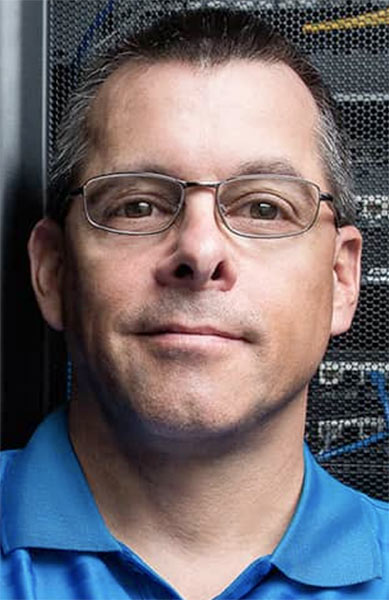

DNS |
Sponsored by |

|
 Having just arrived in Tunis for the WSIS, my weekly Law Bytes column (Toronto Star version, freely available version) focuses on the Internet governance issues that are likely to dominate discussions all week. I argue that claims about a "digital Munich" and a U.N. takeover are not helpful to arriving at an appropriate solution (though based on discussions this morning it does not appear that things are moving very far away from such claims). more
Having just arrived in Tunis for the WSIS, my weekly Law Bytes column (Toronto Star version, freely available version) focuses on the Internet governance issues that are likely to dominate discussions all week. I argue that claims about a "digital Munich" and a U.N. takeover are not helpful to arriving at an appropriate solution (though based on discussions this morning it does not appear that things are moving very far away from such claims). more
 As regular readers know, ICANN holds lengthy, in-depth discussions devoted to DNSSEC at each of its three annual meetings. The half-day session held at ICANN 43 in Costa Rica last month was particularly interesting. What became clear is that the industry is quickly moving into the end-user adoption phase of global DNSSEC deployment. more
As regular readers know, ICANN holds lengthy, in-depth discussions devoted to DNSSEC at each of its three annual meetings. The half-day session held at ICANN 43 in Costa Rica last month was particularly interesting. What became clear is that the industry is quickly moving into the end-user adoption phase of global DNSSEC deployment. more
 The ways in which the Internet is embedded in our daily lives are too varied and numerous to catalogue. The Internet delivers information, access to goods, services, education, banking, social interaction and, increasingly, work space. The global pandemic has only heightened our dependence on the online world, which is why efforts to ensure that the Internet remains a trusted and secure environment are more important than ever. more
The ways in which the Internet is embedded in our daily lives are too varied and numerous to catalogue. The Internet delivers information, access to goods, services, education, banking, social interaction and, increasingly, work space. The global pandemic has only heightened our dependence on the online world, which is why efforts to ensure that the Internet remains a trusted and secure environment are more important than ever. more
 It has been about six months since I got together with four of my friends from the DNS world and we co-authored a white paper which explains the technical problems with mandated DNS filtering. The legislation we were responding to was S. 968, also called the PROTECT-IP act, which was introduced this year in the U. S. Senate. By all accounts we can expect a similar U. S. House of Representatives bill soon, so we've written a letter to both the House and Senate, renewing and updating our concerns. more
It has been about six months since I got together with four of my friends from the DNS world and we co-authored a white paper which explains the technical problems with mandated DNS filtering. The legislation we were responding to was S. 968, also called the PROTECT-IP act, which was introduced this year in the U. S. Senate. By all accounts we can expect a similar U. S. House of Representatives bill soon, so we've written a letter to both the House and Senate, renewing and updating our concerns. more
The Canadian Internet Registration Authority (CIRA) has announced the launch of a security service called D-Zone DNS Firewall -- a cloud-based cybersecurity solution -- to protect Canadian organizations from rasomware and malware. more
 Some cybersquatters register domains in bad faith as part of a business plan to monetize domains by leveraging famous trademarks and high-traffic web sites. Some cybersquatters just don't understand the law. In this this tongue-in-cheek post, we provide a real world case study of the most common mistakes made by cybersquatters when registering trademark protected domains in bad faith. more
Some cybersquatters register domains in bad faith as part of a business plan to monetize domains by leveraging famous trademarks and high-traffic web sites. Some cybersquatters just don't understand the law. In this this tongue-in-cheek post, we provide a real world case study of the most common mistakes made by cybersquatters when registering trademark protected domains in bad faith. more
 There has been a lot of criticism about the worthiness of DNSSEC. Low adoption rates and resistance and reluctance by Registrars to take on the perceived burden of signing domains and passing-on cryptographic material are at the crux of the criticism. I'm a believer in DNSSEC as a unique and worthwhile security protocol and as a new platform for innovation. It's the reason I've long advocated for and continue to work toward a new model of DNSSEC provisioning. more
There has been a lot of criticism about the worthiness of DNSSEC. Low adoption rates and resistance and reluctance by Registrars to take on the perceived burden of signing domains and passing-on cryptographic material are at the crux of the criticism. I'm a believer in DNSSEC as a unique and worthwhile security protocol and as a new platform for innovation. It's the reason I've long advocated for and continue to work toward a new model of DNSSEC provisioning. more
 At ICANN's meeting in Egypt last week, I had the opportunity to try and explain to various non-technical audiences why the Domain Name System (DNS) is vulnerable to attack, and why that is important, without needing a computer science degree to understand it. Here is the summary. more
At ICANN's meeting in Egypt last week, I had the opportunity to try and explain to various non-technical audiences why the Domain Name System (DNS) is vulnerable to attack, and why that is important, without needing a computer science degree to understand it. Here is the summary. more
Microsoft has filed 3 cybersquatting cases at the beginning of September 2007, as reported in an Inside Indiana Business article. I took the liberty of accessing the cases via the PACER system, and posted the major documents... It looks like they're stepping up efforts to defend their trademarks, and seeking big damages in court, rather than go the way of the UDRP. These cases demonstrate that new TLDs should not be a priority with ICANN until the problems in existing TLDs are addressed. more
 EURid, the entity charged with managing the .eu namespace, is reported to have taken action against an alleged cybersquatter based in China, Zheng Qingying... The last suspension "en masse" was directed against Ovidio when over 74 thousand domains were suspended. This time round the number is much lower -- a paltry ten thousand! In this instance there seems to have been a pattern of cybersquatting, with over a dozen ADR proceedings against the registrant in question. more
EURid, the entity charged with managing the .eu namespace, is reported to have taken action against an alleged cybersquatter based in China, Zheng Qingying... The last suspension "en masse" was directed against Ovidio when over 74 thousand domains were suspended. This time round the number is much lower -- a paltry ten thousand! In this instance there seems to have been a pattern of cybersquatting, with over a dozen ADR proceedings against the registrant in question. more
It seems to be impossible to implement a law against spam - unsolicited bulk email - without making a hash of it. At best, anti-spam laws are ineffective; at worst, they cause more problems than spam itself. Can technology fare any better? ...But despite this flurry of initiatives, we are yet to see a definitive answer to the spam problem. An Anti-Spam Technical Alliance has been formed by Microsoft, America Online, Yahoo! and EarthLink, but these companies continue to proffer competing solutions. Meanwhile, the technology being deployed in the spam wars is causing collateral damage, in the form of 'false positives' - email that is incorrectly categorised as spam, and so never reaches its intended recipient. more
 Consumers are embracing VoIP services now more than ever as they get used to calling over Internet application services such as Skype, Facetime, and Google Hangouts. Market Research Store predict that the global value of the VoIP services market is expected to reach above USD140 billion in 2021, representing a compound annual growth rate of above 9.1% between 2016 and 2021. more
Consumers are embracing VoIP services now more than ever as they get used to calling over Internet application services such as Skype, Facetime, and Google Hangouts. Market Research Store predict that the global value of the VoIP services market is expected to reach above USD140 billion in 2021, representing a compound annual growth rate of above 9.1% between 2016 and 2021. more
 Microsoft is a special company. By definition, its operating systems and Internet browser are no longer just "applications;" they constitute a platform. They are - for 90 percent of Internet users - the sole interface to all Internet content and services. The browser is its own little monopoly. Such is its dominance that Microsoft has the power of life and death over innovation. more
Microsoft is a special company. By definition, its operating systems and Internet browser are no longer just "applications;" they constitute a platform. They are - for 90 percent of Internet users - the sole interface to all Internet content and services. The browser is its own little monopoly. Such is its dominance that Microsoft has the power of life and death over innovation. more
 Root name servers are a core service of the Internet. As such they receive a huge amount of queries and need to answer reliably with acceptable delay. The RIPE NCC is responsible for operating one of the 13 DNS root name servers K-root which responds to 10,000 - 15,000 queries per second. Most root servers are operated as a network of distributed "instances" using anycast. more
Root name servers are a core service of the Internet. As such they receive a huge amount of queries and need to answer reliably with acceptable delay. The RIPE NCC is responsible for operating one of the 13 DNS root name servers K-root which responds to 10,000 - 15,000 queries per second. Most root servers are operated as a network of distributed "instances" using anycast. more
 Larry Strickling, who runs the NTIA (the part of the U.S. Department of Commerce that handles ICANN), yesterday gave an important and remarkable speech to the Practicing Law Institute about Internet governance. His speech, timed to coincide with an orchestrated ICANN-bashing across town in the Senate, was a striking defense of the ICANN model and a repudiation of special pleading outside the process. more
Larry Strickling, who runs the NTIA (the part of the U.S. Department of Commerce that handles ICANN), yesterday gave an important and remarkable speech to the Practicing Law Institute about Internet governance. His speech, timed to coincide with an orchestrated ICANN-bashing across town in the Senate, was a striking defense of the ICANN model and a repudiation of special pleading outside the process. more